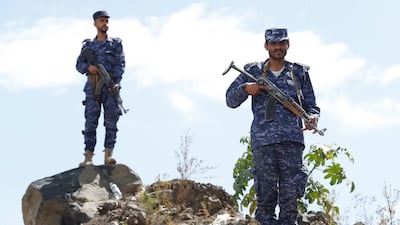Media rights groups on Monday urged Yemen's Iran-backed Houthi rebels to free four journalists sentenced to death for “espionage” in the war-torn country.
The four, Abdul Khaleq Amran, Tawfiq Al Mansouri, Harith Hamid and Akram Al Walidi, were arrested in June 2015 in Yemen's rebel-held capital Sanaa.
The Iran-backed Houthis seized Sanaa from the internationally recognised government in 2014, sparking a civil war that has devastated the already impoverished country.
In April 2020, a Houthi court sentenced the four journalists to death on charges of “treason and spying for foreign states”, a verdict condemned at the time by Yemen's government.
“Their arrest was motivated by their reporting on human rights violations committed by Houthi forces,” the International Federation of Journalists and the Yemeni Journalists' Syndicate said in a joint statement.
The two organisations said they were “launching an emergency call … to put pressure on the Houthi authorities to release our colleagues and save their lives".
The Brussels-based IFJ, which represents journalists and unions from more than 140 countries, said the four had suffered “physical and psychological torture” as well as the “denial of the right to be visited and the right to have access to medical care".
At the time of their trial, Amnesty International criticised their sentencing on “trumped-up charges”, while Reporters Without Borders called the verdict “totally unacceptable".
Hundreds of thousands have been killed and millions displaced in Yemen's conflict, which the UN has labelled the world's worst humanitarian crisis.

